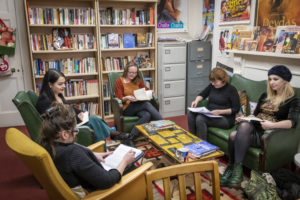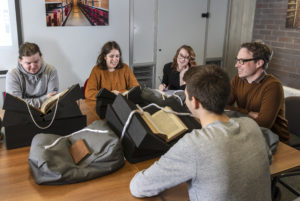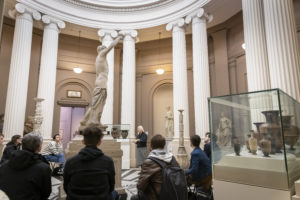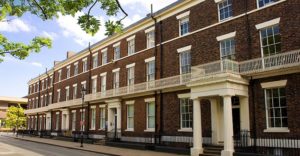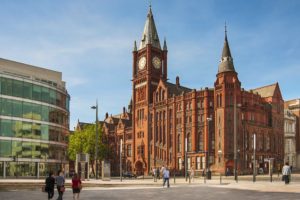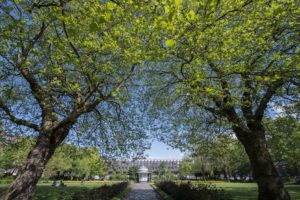How you'll learn
You will experience a mix of lectures, seminars, workshops and tutorials, with no modules being taught entirely through lectures. Most teaching takes place in small groups where you’ll share and explore ideas with your tutors and peers. There is also the opportunity for historical field work in museums and galleries. You’ll also attend workshops and lectures and self-direct study through the course reading list and conducting research for your essays and projects. Academic staff are available on a weekly basis for one-to-one feedback and support through designated office hours. Course material is available 24-hours a day on Canvas, our online learning platform, and study support is available from our dedicated student services team.
Your second and third years benefit directly from research connected teaching, as your learning progresses from the core practice of studying History learnt in year one to a focus on more specific historical periods, places or concepts that will form the basis of your year three special subject and dissertation.
How you're assessed
Students on this course are assessed through a combination of exams and coursework. Coursework can includes essays, group projects, individual or group presentations, writing opinion pieces, creating blogs or vlogs, or designing an exhibition. During your final year, you’ll also submit your dissertation and sit final exams.
Liverpool Hallmarks
We have a distinctive approach to education, the Liverpool Curriculum Framework, which focuses on research-connected teaching, active learning, and authentic assessment to ensure our students graduate as digitally fluent and confident global citizens.
The Liverpool Curriculum framework sets out our distinctive approach to education. Our teaching staff support our students to develop academic knowledge, skills, and understanding alongside our graduate attributes:
- Digital fluency
- Confidence
- Global citizenship
Our curriculum is characterised by the three Liverpool Hallmarks:
- Research-connected teaching
- Active learning
- Authentic assessment
All this is underpinned by our core value of inclusivity and commitment to providing a curriculum that is accessible to all students.

